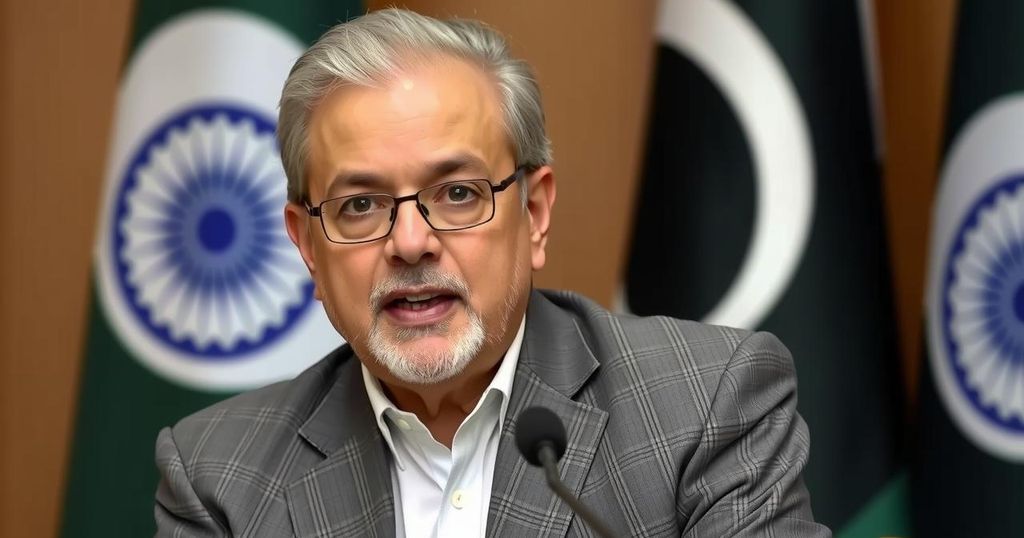Pakistan’s Foreign Minister Ishaq Dar emphasized that normalizing relations with India requires mutual willingness, stating “It takes two to tango.” He addressed diplomatic efforts, regional ties with Bangladesh, and challenges posed by terrorism in Afghanistan. Dar also announced the inauguration of the Chashma 5 nuclear project and clarified the purpose of Gwadar port amidst military speculation.
Pakistan’s Deputy Prime Minister and Foreign Minister, Ishaq Dar, stressed the necessity for mutual commitment in normalizing relations with India, stating, “It takes two to tango.” He provided insights into the diplomatic initiatives undertaken since the Pakistan Muslim League-Nawaz (PML-N) government assumed power last year, indicating ongoing efforts to improve bilateral relations. In his comments on regional connections, Dar also mentioned future plans to visit Bangladesh and the rebuilding of ties between the two nations after shifts in governance.
While addressing queries about diplomatic isolation, Dar assured reporters that Pakistan’s international standing is improving through enhanced engagement with neighboring countries. He remarked on the challenges posed by terrorism in Afghanistan but emphasized the desire to bolster ties with Kabul. Critically, he noted the need for the Afghan regime to control terrorism emanating from its territory, especially in light of recent escalations in violence.
Moreover, Dar announced the appointment of former Foreign Secretary Sohail Mahmood as the Secretary General of the D-8 Developing Eight Forum, confirming the continued expansion of Pakistan’s active diplomatic roles. He also highlighted advancements in Pakistan’s nuclear energy capabilities with the inauguration of the Chashma 5 nuclear power project, solidifying collaborations with China. In response to concerns about military use of Gwadar port, outgoing spokesperson Mumtaz Zahra Baloch clarified its purpose for national development, aligning with China’s development initiatives.
The relationship between Pakistan and India has long been fraught with tensions stemming from historical conflicts and territorial disputes, necessitating a concerted effort from both sides for normalization. Ishaq Dar’s remarks reflect the Pakistani government’s acknowledgment of this reality, emphasizing a reciprocal approach to diplomacy. Additionally, the geopolitical landscape includes regional dynamics, such as Pakistan’s relations with Afghanistan and Bangladesh, which impact its diplomatic strategies. The ongoing initiatives to expand economic cooperation and leverage energy projects also play a significant role in Pakistan’s foreign policy agenda.
In conclusion, Ishaq Dar’s statements underscore the importance of mutual cooperation in fostering improved relations with India while also highlighting Pakistan’s broader diplomatic engagements with its neighbors. His emphasis on addressing terrorism and enhancing diplomatic ties resonates with Pakistan’s current strategic objectives, as does the focus on energy sector advancements and multilateral forums. Moving forward, these efforts will be crucial in reshaping Pakistan’s international standing and regional role.
Original Source: www.business-standard.com






